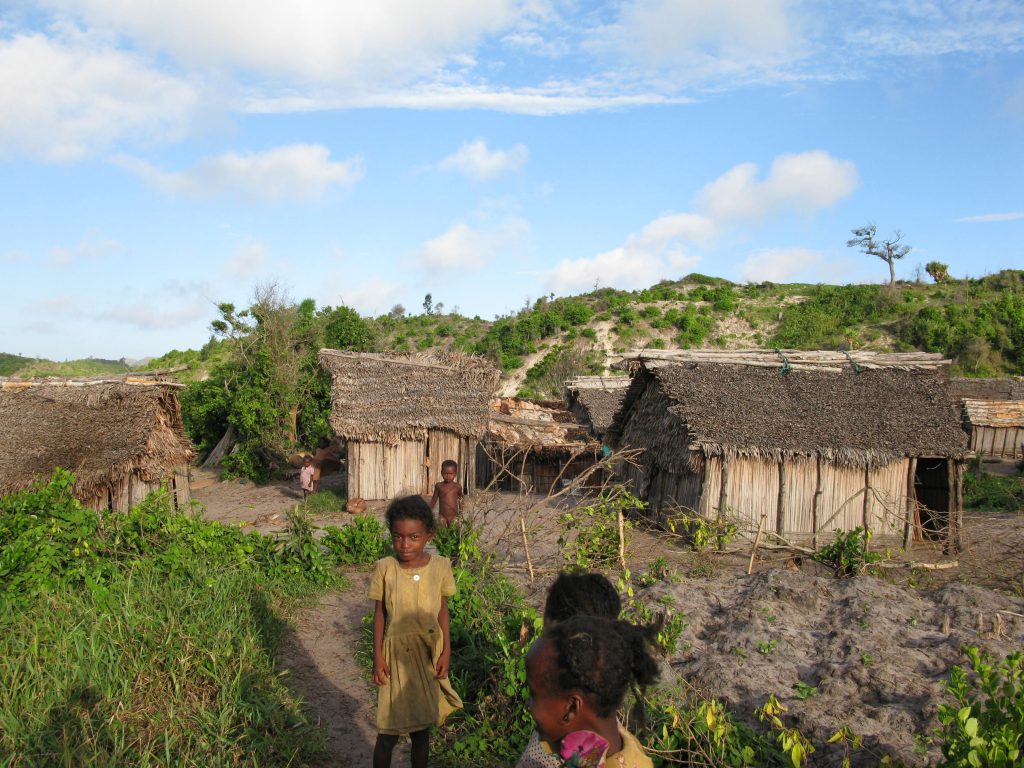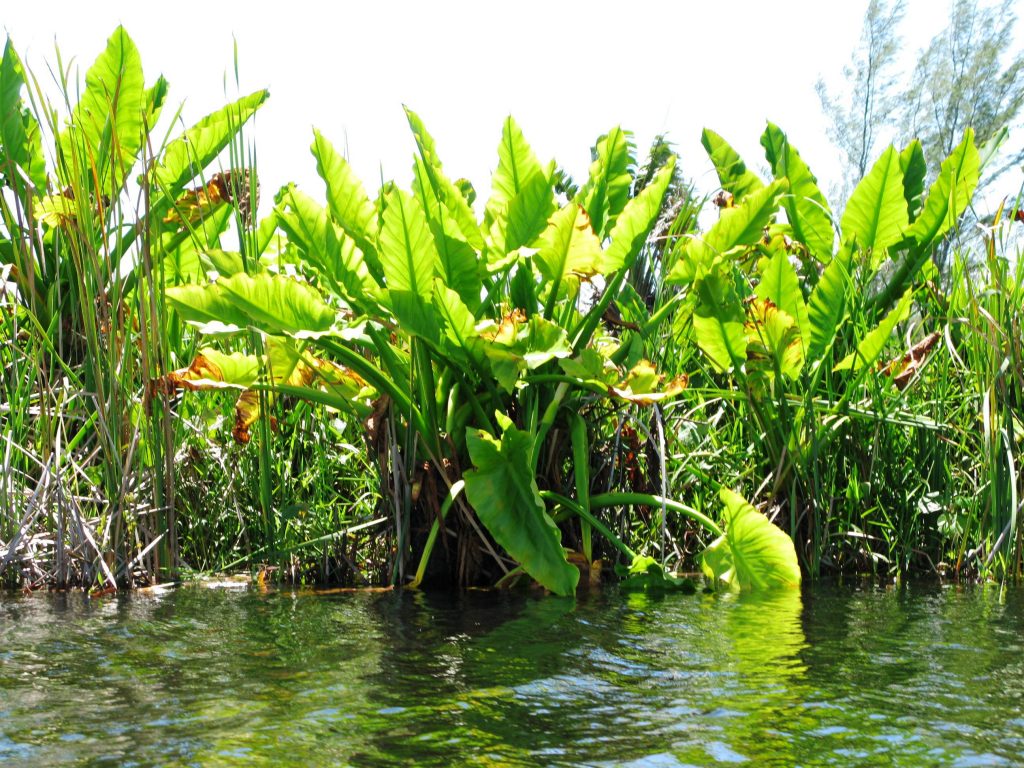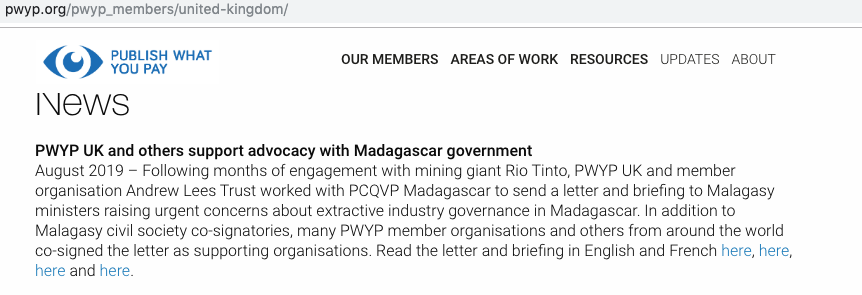
As part of its research and advocacy around the Rio Tinto/QMM mine in southern Madagascar, in particular its inquiry into the breach of the environmental buffer zone and concomitant questions around water contamination, the Trust has been working closely with Publish What You Pay (PWYP) in the UK and in Madagascar to address questions around the relationship between Qit Minerals Madagascar (QMM) and the national environmental regulator, The National Office for the Environment (ONE).
The ONE is responsible for monitoring the mine and its adherence to laws and regulations that protect the environment and the natural resources upon which local people rely for their survival. Local communities fish and draw their drinking water from the lakes and waterways adjacent to the QMM mine. They also collect reeds for weaving, Viha plants for roofing, and other water products, so the quality of the water, land and forest resources must be free from contamination.

However, the rigour of current environmental monitoring around the QMM mine is currently under question. The breach of the buffer zone by QMM, by as much as 90 metres in places, has broken laws and agreements without any penalties or sanctions. Concerns have been raised by communities and complaints made at local level (by a local deputy) that the relationship between QMM and the ONE is compromised and the mechanisms for environmental monitoring and consultation processes are neither transparent nor equitable.
August 2019 – Following months of engagement with Rio Tinto, Publish What You Pay (PWYP) UK and the Trust (as a member of PWYP) worked closely with PWYP Madagascar to prepare a letter and briefing to send to Malagasy ministers raising urgent concerns about extractive industry governance in Madagascar. It took the QMM mine in Anosy as a case study in the briefing by way of exposing how the current mining code in Madagascar affords gaps in accountability and transparency that risk undermining local governance and environmental protection, as well as citizens’ rights. The letter was sent in August 2019 by PWYP Madagascar and calls for a review of the Mining Code with civil society in order to address these gaps and promote greater transparency.

In addition to Malagasy civil society co-signatories, many PWYP member organisations and others from around the world co-signed the letter as supporting organisations. The letter and briefing have been shared widely with key agencies and stakeholders, including with the external advisory committees for QMM, the Extractives Industry Transparency Initiative (EITI), the International Council for Mining and Minerals(ICMM), The Business and Human Rights Resource Centre and disseminated broadly through local, national, international and online networks.
On receipt of the letter at the end of August 2019, the Minister for the Environment informed PWYP in Madagascar that there would be an investigation.
Read the letter and briefing in English and French
Letter French version/Version Francais
Briefing French version / Version Francais
Read the Mongabay Article – published November 20th 2019

Pingback: Remote control: Rio Tinto's AGM and 'shareholder engagement session', London, 8 April 2020 - London Mining Network